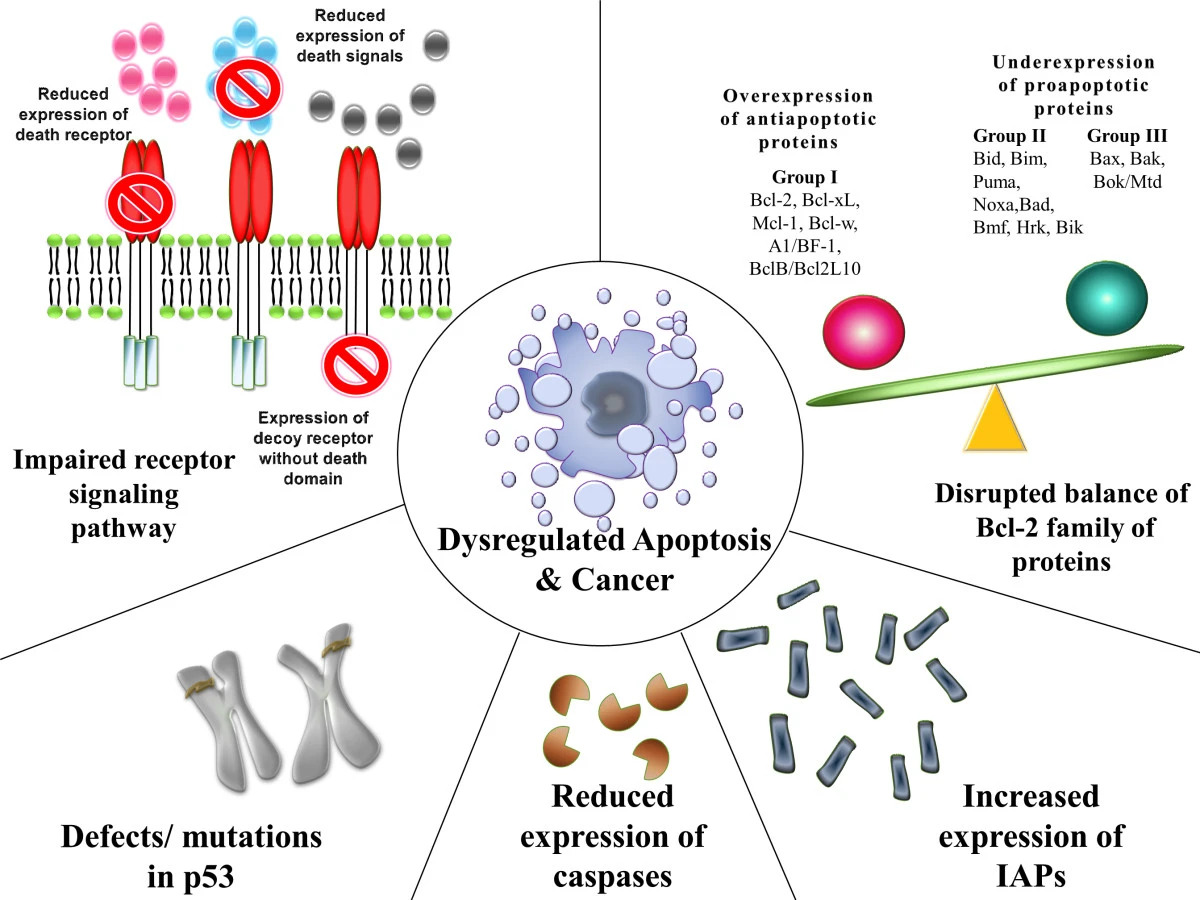Playlist
Show Playlist
Hide Playlist
DNA Repair Genes
-
Slides CP Neoplasia Genetic alterations in malignancy.pdf
-
Reference List Pathology.pdf
-
Download Lecture Overview
00:00 So, DNA repair genes are also important. So it's not just the regulators of the various checkpoints that crown the cell cycle, but it's also the DNA repair genes. There is damage ongoing all the time from radiation and chemical exposures, reactive oxygen species, etc. 00:21 So every cell in the body is having their DNA attack in some way, shape, or form needs to be very well regulated in terms of the repair. There is always some spontaneous replicative error too that as the polymerase is going down the genome, it puts in the wrong nucleotide and we need to be able to identify that and correct that. And we have variety of of mechanisms to do this. We have kind of mismatch repair where we have the wrong nucleotides interacting with each other. We can actually carve out nucleotides. We can also use the other normal chromosome as a template for regenerating the defective or the mutated chromosome material. So we can have homologous recombination. So there are various ways that we can repair the DNA damage and all these come into play in normal cells. If we don't have the normal repair mechanism, that loss leads to genetic instability. 01:27 In fact, by not having adequate repair, we get tend to accumulate more and more and more mutations. So examples of the genes that are responsible for repair and where there is mutations is the BRCA1-2 storage, so those are 2 separate proteins. They help to repair broken DNA using homologous recombination. If you have a single BRCA1 mutation, you are at increased risk of breast cancer and endometrial cancer. ATM, it's not just the genes responsible for the repair but for sensing damaged DNA. And ATM is a gene that will be very important for acknowledging or somehow telling the cell that there is DNA damage and causing the upregulation of p53 and that can be mutated in certain settings. 02:21 So let's just look at the DNA kind of repair mechanisms. This is going to be by homologous recombination and other forms. So we have here our 2 DNA strands and 1 has developed a double-stranded break. That is sensed and the sensing is actually kind of interesting. 02:38 How do we know that there is a break in the DNA? And I'm not sure though I can answer that or than anyone else can at this point in great detail but there are a number of proteins whose only job in life is to figure out that there is a break in the DNA and this includes ATM as well as CHEK2, but there are others. Oh my God there are others. Okay. Once it recognize that there is a break in that blue strand where the red explosion happen, they will recruit, ATM and CHEK2 will recruit a whole bunch of other proteins. Again, numbers, names not too important, just know that there is a complex that's recruited to that double-stranded break. And in this case it includes BRCA1 and BRCA2 so you can see where mutations in these proteins might be a problem. And those accumulated protein complex at that point where there is the break then will recruit or will use the normal green strand which doesn't have a double-stranded break and will use that as a template for regenerating normal chromosomal integrity so the genes or whatever has been broken there is returned to normalcy because we had a normal strand that we could use as a template.
About the Lecture
The lecture DNA Repair Genes by Richard Mitchell, MD, PhD is from the course Neoplasia.
Included Quiz Questions
What is one way to repair DNA damage?
- Mismatch repair
- Nucleotide incision
- Heterologous recombination
- Reassortment
- Integration
Which of the following proteins has an important role in sensing DNA damage?
- ATM
- BRCA1
- BRCA2
- MYC
- RAS
Customer reviews
5,0 of 5 stars
| 5 Stars |
|
5 |
| 4 Stars |
|
0 |
| 3 Stars |
|
0 |
| 2 Stars |
|
0 |
| 1 Star |
|
0 |




